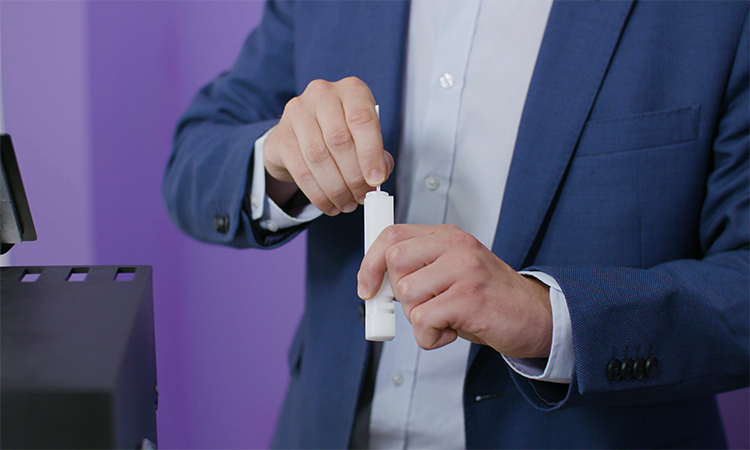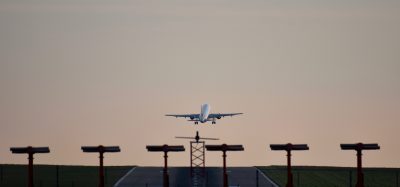Heathrow Airport’s workforce participates in COVID-19 testing trial
Posted: 4 September 2020 | International Airport Review | No comments yet
By conducting the trial, Heathrow Airport hopes to show that COVID-19 testing can be done on a wide scale in order to encourage the recovery of aviation.


Credit: London Heathrow Airport
London Heathrow Airport’s (LHR) workforce has stepped up and taken part in three rapid point of care COVID-19 testing trials, doing their bit to help the recovery of the aviation industry following the severe and ongoing impact of the COVID-19 pandemic.
The findings from the trials are currently being evaluated and will be shared with the UK government as ministers consider how testing could provide a safe alternative to blanket quarantine requirements in certain circumstances.
The long-term aim of the trial is to understand whether these tests could be quickly and efficiently conducted on large numbers of people outside of a laboratory setting and to ensure that they are accurate enough to be delivered in an airport environment.
The trials evaluate three different testing methods for accuracy, user experience and practicality outside of a lab environment, and sit alongside Heathrow’s capability to test passengers on arrival with a Swissport and Collinson site ready to begin operation.
In colleague testing trials, Heathrow worked with:
- Geneme, which proposed a rapid RT-LAMP test that uses a sample collected from a nasal or throat swab to provide results within 30 minutes. It uses a secure application from Yoti that simplifies the capture, processing and result sharing of COVID-19 tests, without needing paperwork. Secure spoof-proof results can be sent to an individual’s phone using the free Yoti app or to a specified email
- Mologic, which put forward a lateral flow solution that uses a saliva sample on a test device, which provides a visually-read result in 10 minutes
- I-Abra, which is working with the airport to trial the Virolens testing device to see whether its machine learning holographic microscope – backed by Dell/Intel and partnered with TT Electronics plc for design and manufacturing – can quickly (in under 30 seconds) and accurately identify whether a person is carrying the disease through a self-administered test.
Colleagues were given the option to choose which of the solutions they trialled. However, as the results of these initial trials are only advisory until the methodologies are proven to work in a non-clinical setting, participating colleagues also took a UK government-approved, privately provided PCR test to compare their results to UK government-accredited tests.
In early August 2020, the UK government unveiled plans to trial new rapid coronavirus tests across NHS hospitals, care homes and labs to understand how these alternative tests could help to increase testing capacity in preparation for winter. Heathrow’s own trials will feed into the government’s findings after being independently evaluated by a sub group of academics that are part of CONDOR. It is hoped that these findings will then be used to support recovery across multiple sectors.
CONDOR is working to accelerate the real-world use of COVID-19 diagnostics, and their findings will help to identify the most accurate testing methods. Results of the study are being sent to the Department for Health and Social Care to support the decision making process.
London Heathrow Airport‘s CEO, John Holland-Kaye, said: “Testing is the lifeline that the UK’s aviation sector needs to get back on its feet. We’ve put some of the most cutting-edge rapid testing technologies into action at Heathrow to see which offers the best solution. If we can find a test that is accurate, gets a result within a matter of minutes, is cost-effective and gets the government green light, we could have the potential to introduce wide-scale testing at the airport.”
“Every passenger travelling through Heathrow would have the confidence to know that the airport is COVID-19-free, boosting demand and getting Britain back to safely trading and travelling with the world again. Without this, our first class aviation sector risks becoming second class, giving Britain’s competitive advantage to others,” he added.
These trials further complement Swissport and Collinson’s proposed PCR testing-on-arrival pilot, the facility for which was unveiled in late August 2020. The pilot, which is subject to government approval, could provide passengers arriving from countries with higher infection rates with a reduced quarantine period if they test negative for COVID-19 twice, during the proposed two test process.
Stay Connected with International Airport Review — Subscribe for Free!
Get exclusive access to the latest airport and aviation industry insights from International Airport Review — tailored to your interests.
✅ Expert-Led Webinars – Gain insights from global aviation leaders
✅ Weekly News & Reports – Airport innovation, thought leadership, and industry trends
✅ Exclusive Industry Insights – Discover cutting-edge technologies shaping the future of air travel
✅ International Airport Summit – Join our flagship event to network with industry leaders and explore the latest advancements
Choose the updates that matter most to you.
Sign up now to stay informed, inspired, and connected — all for free!
Thank you for being part of our aviation community. Let’s keep shaping the future of airports together!
Related topics
Airport crisis management, COVID-19, Passenger experience and seamless travel, Safety, Workforce
Related airports
Related organisations
Collinson, Department for Health and Social Care, National Health Service (NHS), Swissport, UK Government


















